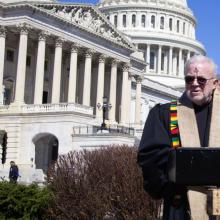acts of civil disobedience
IN THE EARLY 1940s, Raoul Wallenberg was a slight, balding young man living modestly in Stockholm. He worked for a trading company that imported Hungarian poultry to Sweden. Wallenberg’s colleagues were mainly Hungarian Jews.
He had trained in the U.S. to be an architect. But on his return to Sweden, Wallenberg discovered that he didn’t have the engineering courses required to be hired in his homeland. His other career alternative, banking, also eluded him. The extended Wallenberg family owned one of Sweden’s most prosperous banks, Stockholms Enskilda Bank. But they found Wallenberg to be overly talkative, too artistically inclined, and having a penchant for drama that did not signal, for them, the makings of a top-drawer Swedish banker. So Wallenberg fell into depression, feeling that he was a failure, now known to his family disparagingly as “the grocer.”
Yet this unfulfilled young man would become, virtually overnight, one of the great heroes of World War II.
Veteran Swedish journalist Ingrid Carlberg has written a remarkable, nuanced, 600-page biography featuring extensive original research and new material: Raoul Wallenberg: The Heroic Life and Mysterious Disappearance of the Man Who Saved Thousands of Hungarian Jews from the Holocaust. The English translation of this award-winning work was released earlier this year.
When the Germans sent 500 Norwegians to Auschwitz in late 1942, the outraged Swedish government, which had remained neutral, declared that Sweden would accept any Jew who could make it to the Swedish border. They also decided to set up a special humanitarian aid mission in Budapest to help Hungarian Jews being annihilated by Hitler’s troops. A colleague at the trading company immediately recommended Wallenberg to the Swedish Foreign Mission to head the new mission.
WHEN I RECENTLY spoke at Calvin College in Grand Rapids, Mich., on the subject of my book America’s Original Sin, the moderator introduced me with something that isn’t in my official bio. “Our speaker today has been arrested 22 times.”
It’s up to 23 times now, after I was arrested in December in the Hart Senate Office Building for reading biblical passages about poverty to protest the GOP tax plan, which disproportionately favors the rich.
In Shane Claiborne’s piece in this issue, he provides an overview of civil disobedience—both the biblical basis for disobeying unjust laws and how people doing so, often at great risk, have changed the course of history again and again. I want to share a few of my own reflections on civil disobedience.
In late 1983, on the heels of the Reagan administration’s invasion of Grenada, church leaders in Nicaragua called Sojourners and pleaded with us to help stop the invasion of their country, rightly fearing that the U.S. would target Nicaragua next. We asked ourselves, What can we do?
After much prayer and discernment, and in collaboration with many allies in the Christian peace movement, we launched “The Pledge of Resistance,” wherein Christians across the United States “pledged” to fill the offices of their members of Congress in massive civil disobedience if Nicaragua were invaded. Eighty thousand people eventually signed the pledge. Most of the signers were prepared to be arrested and go to jail if necessary.
Our hope in creating this pledge was to increase the domestic cost of a U.S. invasion—with a credible promise to mobilize tens of thousands to engage in principled law-breaking all over America—hoping that might make decision-makers reconsider. It worked.
As of yesterday, more than 1,009 Americans have been arrested to bring national attention to the controversial Keystone XL pipeline. This is what church looks like. Liturgy means "the work of the people" in service of the common good.
If President Obama permits the Keystone pipeline, thousands more will sit on his doorstep and in front of bulldozers. This movement doesn't have money to match the influence of oil companies, lobbyists, or politicians with conflicts of interest, but we do have our bodies and we are putting them on the line.
Here are what people of faith -- Jews, Christians, Buddhists, Quakers, Unitarians, and more -- are saying about why they have been or will be arrested to stop the Keystone XL pipeline:
The earth dries up and withers ... The earth is defiled by its people; they have disobeyed the laws, violated the statutes, and broken the everlasting covenant. - Isaiah 24:4-6
Today I have given you the choice between life and death, between blessings and curses. Now I call on heaven and earth to witness the choice you make. Oh, that you would choose life, so that you and your descendants might live! - Deuteronomy 30:19
During the 1980s, many Christians were at the forefront of a movement to avert nuclear annihilation. They saw this transcendent threat as a moral crisis and felt a responsibility to nonviolently resist, including acts of civil disobedience and divine obedience. Today, we face a comparable danger -- a climate catastrophe which could decimate life on earth. Yet it seems not to have been picked up on the Christian "radar screen" in the same way. For this reason, it is actually more insidious.

